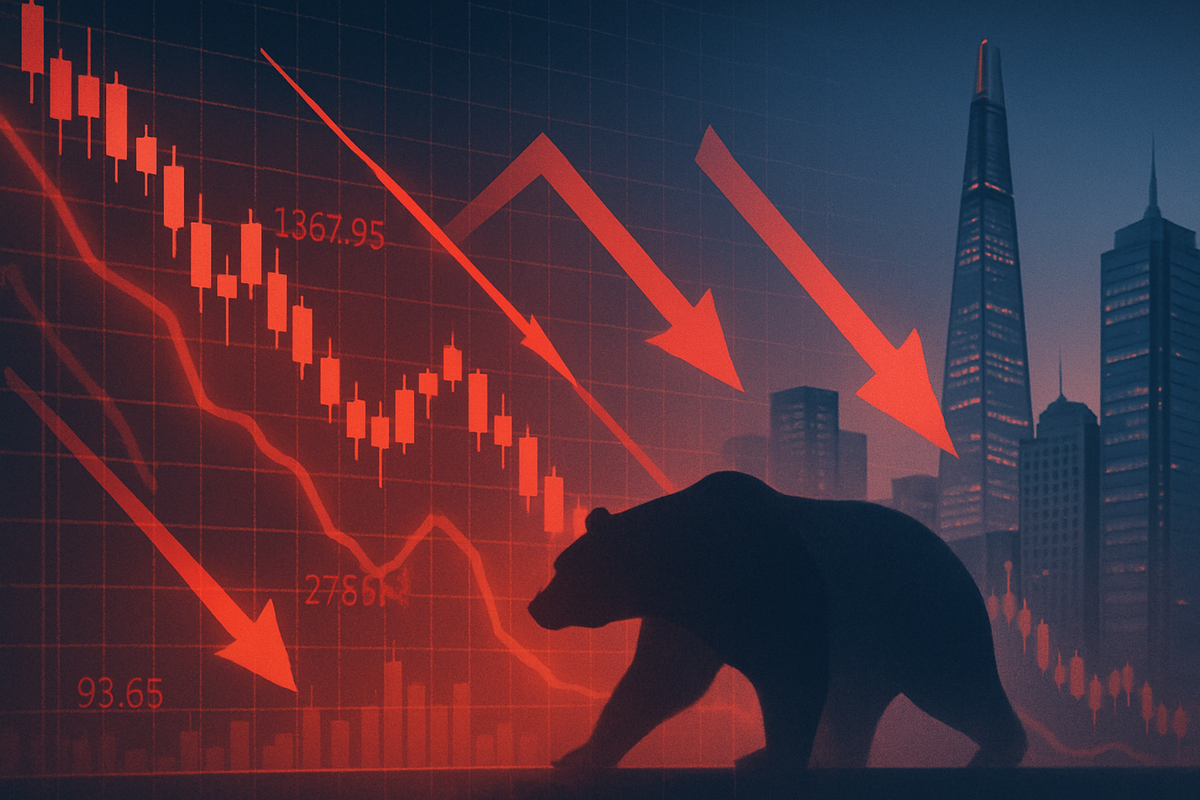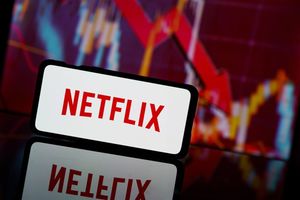
SEOUL, South Korea – October 23, 2025 – The Korean stock market has witnessed a dramatic surge in short selling activity over the past seven months, transforming the investment landscape and sparking both optimism and apprehension among market participants. Following the full reinstatement of short selling on March 31, 2025, after a protracted ban, the balance of short positions has soared to unprecedented levels, signaling a new era of market dynamics. This sharp increase, particularly noticeable in the KOSPI and KOSDAQ markets, suggests a growing desire among investors, especially institutional players, to hedge against potential market corrections or capitalize on anticipated declines in specific stock valuations.
The immediate implications of this resurgence are multifaceted. While proponents argue that increased short selling enhances market liquidity, improves price discovery, and aligns South Korea with global developed market standards, the initial market reaction saw significant volatility and declines in benchmark indices. This trend has put certain sectors and companies under intense pressure, raising questions about market stability and fairness, particularly for retail investors who have historically viewed short selling with skepticism. The coming months are poised to test the resilience of the Korean market as it navigates these new, more complex trading conditions.
A New Chapter for Korean Equities: The Post-Ban Short Selling Surge
The journey to the full resumption of short selling in the Korean market was a carefully orchestrated process, culminating in a significant shift on March 31, 2025. This date marked the end of a 17-month blanket ban, initially imposed in November 2023 following revelations of illegal naked short selling by foreign investment banks. The Financial Services Commission (FSC) and the Financial Supervisory Service (FSS), key regulatory bodies, meticulously laid the groundwork, including extending the ban until March 2025 to develop a robust "Naked Short-Selling Detecting System" (NSDS). The Korea Exchange (KRX) successfully launched this system in January 2025, integrating it with institutional investors' balance management systems to prevent illegal practices in real-time. Concurrent regulatory reforms standardized stock lending repayment periods to 90 days (extendable to 12 months) and set a uniform collateral ratio of 105% for all investor types, aiming to foster a more equitable trading environment.
Since the ban's lifting, the short selling balance has escalated dramatically. At the end of March 2025, the proportion of short selling balance relative to the KOSPI market capitalization was a mere 0.19%. By July 13, 2025, the net short position on the benchmark KOSPI surged by a staggering 131% to 9.44 trillion won (approximately $6.8 billion), with its proportion climbing to 0.35%. This upward trajectory continued, with the KOSPI's net short selling balance peaking at 10.4142 trillion won by August 22, 2025, representing approximately 0.4% of its market capitalization – more than double the figure from March. The tech-heavy KOSDAQ market mirrored this trend, experiencing a more than twofold increase in its short selling balance during the same period. Most recently, as of October 20, 2025, the KOSPI's net short selling balance reached an unprecedented 12.6 trillion won. Similarly, the net short position in KOSDAQ, as a percentage of its total market cap, more than doubled from 0.5% on March 31 to 1.1% on October 21, 2025, underscoring a persistent and growing appetite for hedging among investors.
The initial market reaction to the lifting of the ban was characterized by a palpable sense of apprehension. On March 31, 2025, both the KOSPI (KRX: 000001) and KOSDAQ (KRX: 000002) indices tumbled by approximately 3%, with foreign investors emerging as significant sellers on the KOSPI. This downturn was exacerbated by broader concerns over U.S. trade policies and stagflation. However, analysts largely anticipated this short-term volatility, viewing it as a necessary adjustment. The long-term outlook remained cautiously optimistic, with expectations of improved market transparency, enhanced efficiency, and increased liquidity. The resumption was also seen as a crucial step for South Korea's bid to achieve developed market status by MSCI, attracting global hedge funds and institutional investors keen on leveraging more sophisticated trading strategies.
Navigating the Volatility: Winners and Losers in the Short Selling Arena
The surge in short selling activity has undeniably created a distinct landscape of potential winners and losers within the Korean stock market. Companies with inflated valuations, weaker fundamentals, or those facing significant industry headwinds are particularly vulnerable to increased short interest. Conversely, robust companies with strong growth prospects, solid financials, and effective communication strategies may find opportunities amidst the volatility.
Immediately following the ban's lift, secondary battery makers were among the hardest hit, experiencing substantial declines. Companies such as LG Energy Solution (KRX: 373220), Posco Future M (KRX: 003670), and L&F (KRX: 066970) saw significant losses as short sellers targeted what they perceived as overextended valuations. Major technology stocks, including Samsung Electronics (KRX: 005930) and SK Hynix (KRX: 000660), also faced downward pressure. As of August 22, 2025, several KOSPI-listed companies exhibited particularly high proportions of net short selling balance relative to their market capitalization, indicating strong bearish sentiment. These included HANMI Semiconductor (KRX: 042700) (6.17%), SKC (KRX: 011790) (4.59%), Hotel Shilla (KRX: 008770) (4.36%), LG H&H (KRX: 051900) (4.18%), and Hanwha Solutions (KRX: 009830) (3.18%). On the KOSDAQ, Ecopro (KRX: 086520) (5.36%), Cheryong Electric (KRX: 070770) (5.19%), Enchem (KRX: 348370) (5.17%), and Danal (KRX: 064260) (5.15%) were among those with the highest short positions. By October 20, 2025, Kakaopay (KRX: 377300), L&F (KRX: 066970), Hanmi Semiconductor (KRX: 042700), Cosmax (KRX: 192820), and LG H&H (KRX: 051900) continued to feature prominently on the KOSPI's list of companies with the highest short selling balance to market cap ratios. Companies removed from the KOSPI 200 and KOSDAQ 150 indices during the June 2025 rebalancing, such as LX International (KRX: 001120) and Openedges Technology (KRX: 394280), also experienced increased short selling pressure due to reduced institutional interest and liquidity.
Conversely, companies that demonstrate robust financial health, consistent earnings growth, and clear strategic roadmaps may emerge relatively unscathed or even benefit. Short selling can expose overvalued assets, allowing capital to flow into more fundamentally sound companies. Furthermore, the increased liquidity provided by short sellers can facilitate more efficient trading for all market participants, potentially attracting long-term foreign investment into well-performing Korean firms. Companies with strong investor relations and transparent reporting practices may also be better equipped to counter negative sentiment driven by short interest, maintaining investor confidence even in volatile conditions.
Broader Implications: Reshaping Korea's Financial Landscape
The dramatic increase in short selling in the Korean stock market is not merely a tactical shift but a development with far-reaching implications that could fundamentally reshape the nation's financial landscape. This move aligns South Korea more closely with global financial market standards, particularly as it actively seeks an upgrade to developed market status by MSCI. The ability for investors to engage in both long and short positions is a hallmark of mature markets, offering greater flexibility for hedging and arbitrage strategies that attract sophisticated international capital.
However, the ripple effects extend beyond market mechanics. The heightened scrutiny from short sellers often acts as a potent corporate governance mechanism, forcing companies to be more transparent and accountable. Firms with opaque accounting practices or questionable management decisions may find themselves under intense pressure, potentially leading to improved corporate governance standards across the board. This trend could also impact merger and acquisition activities, as short interest can highlight vulnerabilities or mispricings that strategic investors might exploit. From a regulatory standpoint, the success of the Naked Short-Selling Detecting System (NSDS) will be crucial. Its ability to effectively prevent illegal naked short selling will determine the long-term trust in the market's fairness, especially among retail investors who have historically been wary of short selling's perceived unfairness. Historically, similar liberalizations in other emerging markets have often led to initial volatility, followed by a period of increased efficiency and deeper market integration as investors adapt to the new equilibrium.
The Path Forward: Adapting to a More Dynamic Market
Looking ahead, the Korean stock market is entering a new phase defined by increased dynamism and potentially higher volatility. In the short term, investors should anticipate continued fluctuations as the market fully digests the implications of widespread short selling. This period may see sustained pressure on companies with high short interest, prompting some to undertake strategic pivots, such as share buybacks, enhanced investor communication, or even fundamental business restructuring to counter bearish sentiment. For long-term investors, this environment could present unique opportunities to acquire fundamentally strong companies at discounted valuations if short-term pressures lead to temporary price dislocations.
The long-term outlook suggests a more efficient and globally integrated market. Korean companies will need to adapt by strengthening their financial disclosures, improving corporate governance, and actively engaging with institutional investors to articulate their growth stories. The market will likely become more discerning, rewarding companies with clear competitive advantages and penalizing those with weaker fundamentals. Potential strategic adaptations for companies include diversifying their investor base, implementing robust risk management frameworks, and proactively addressing any perceived weaknesses that could attract short sellers. Regulatory bodies will continue to monitor the market closely, potentially refining rules around short selling to maintain market stability and fairness. Emerging market opportunities may arise as South Korea's market matures, attracting a broader spectrum of international capital seeking diversified investment strategies.
A New Equilibrium: Navigating Korea's Evolving Investment Landscape
The sharp increase in short selling balance in the Korean stock market over the past seven months marks a pivotal moment in its evolution. The full lifting of the ban in March 2025, coupled with the implementation of advanced detection systems and regulatory reforms, has ushered in an era of heightened market activity and scrutiny. Key takeaways include the significant surge in short positions across both KOSPI and KOSDAQ, the initial market volatility, and the concentrated impact on sectors like secondary battery makers and specific companies with elevated short interest. While the immediate aftermath brought declines and concerns, the long-term expectation is for improved market efficiency, liquidity, and transparency, aligning Korea with global developed market standards.
Moving forward, the market will likely operate under a new equilibrium where short selling plays a more integral role in price discovery and risk management. Investors should remain vigilant, paying close attention to company fundamentals, market sentiment indicators, and regulatory developments. The performance of the Naked Short-Selling Detecting System (NSDS) in preventing illegal activities will be a critical factor in maintaining investor confidence. Companies will need to prioritize strong governance and transparent communication to navigate this more dynamic environment successfully. Ultimately, this shift represents a significant step in the maturation of the Korean financial market, offering both challenges and opportunities for those prepared to adapt to its evolving landscape.
This content is intended for informational purposes only and is not financial advice





